1950
Rio de Janeiro
While the reputation of the Rousseau Institute had grown under the influence of Hélène Antipoff’s work in Brazil, Piaget’s research had also produced echoes since the 1920s. As a result, Piaget was invited to Rio de Janeiro in 1950 to receive an honorary doctorate, the first in Latin America.
1953
New York
The trips also serve to develop and reinforce networks, for example for funding applications. In March 1953, the meeting with the directors of the Rockefeller Foundation in New York was part of a long process of requests for financial support that led to the creation of the International Center for Genetic Epistemology in 1955, an intellectual and multidisciplinary adventure that lasted until Piaget’s death in 1980.
1953
Leuven Congress
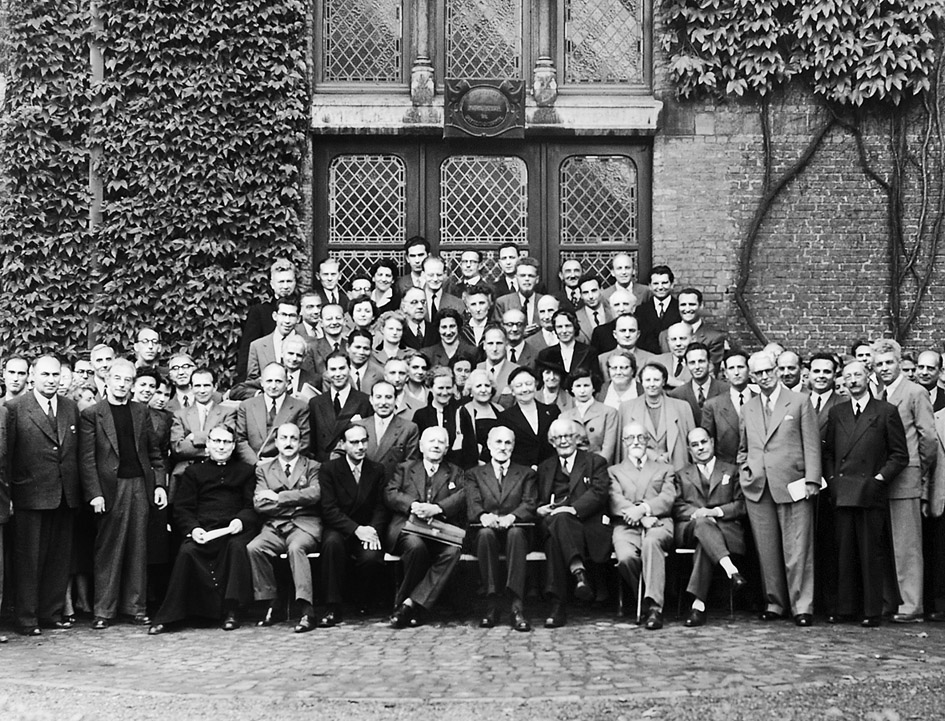
From the early 1950s, Piaget, along with his friends Albert Michotte and Henri Piéron, contributed to the organisation of the French-speaking Association of Scientific Psychology. In July 1953, this institution held its second congress in Leuven, bringing together several actors in experimental psychology from Belgium, France and Switzerland.
Group photo, sitting in the middle (from left to right): Albert Michotte, Henri Piéron and Jean Piaget.
1955
Moscow
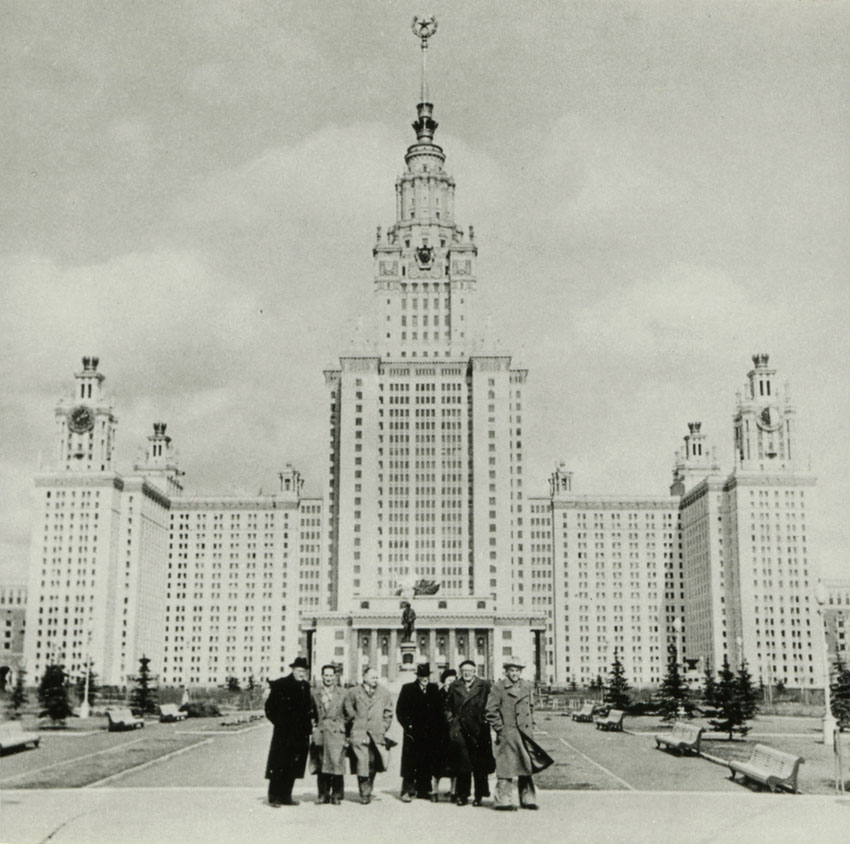
In 1953, Stalin’s death led to the transformatiion of the soviet field and, the following year, the authorities sent a delegation of psychologists to the Montreal Congress, where Piaget was elected president of the International Union of Psychology (IUPsyS). In 1955, a delegation composed by Piaget, Paul Fraisse and René Zazzo traveled to Moscow. Piaget then published his impressions of the trip in an article in the International Social Science Journal (Vol. 8, 1956).
From left to right: X, René Zazzo, Paul Fraisse, Alexis Leontiev, X, Piaget and Alexandre Luria, in front of Lomonossov University
1961
Oslo
Piaget made his first trip to Oslo in 1953 to participate in Arne Naess’ science research. In the summer of 1961, he went there for the second time to receive an honorary doctorate from the University of Oslo.
1964
Ljubljana
Piaget did not hesitate to develop collaborations with Eastern European countries, such as Yugoslavia, where he participated in the International Congress of Applied Psychology in August 1964.
1966
Edimburgh
Piaget’s ideas were also of great interest to physicians, who invited him to the Sixth Congress of the International Association of Child Psychiatry and Related Professions, in July 1966. There he gave a lecture on the intellectual development of the adolescent.
1966
Moscow Congress
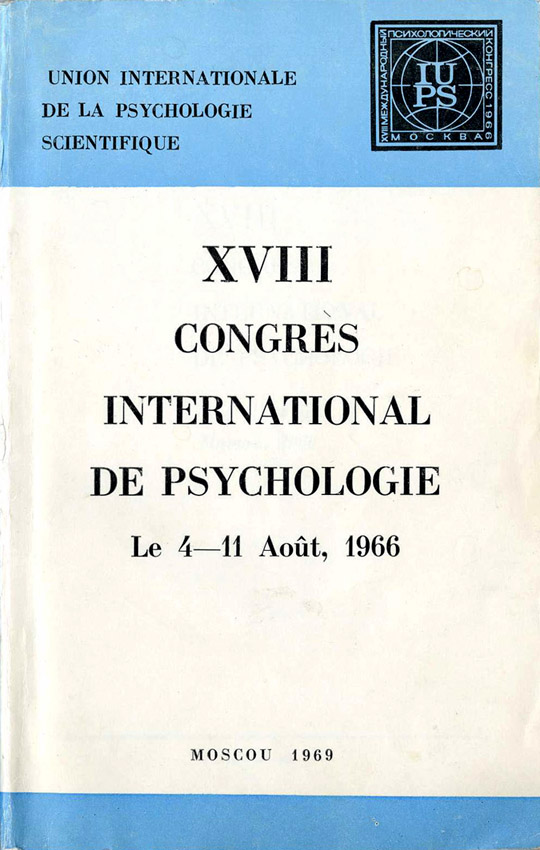
At the time of the Cold War, the organization of the 18th International Congress of Psychology in Moscow by Piaget, Leontiev and Luria demonstrated that science transcends political boundaries. Piaget was received as guest of honour, and was therefore in charge of the opening lecture and the conclusions of the symposium.
1967
Sassari
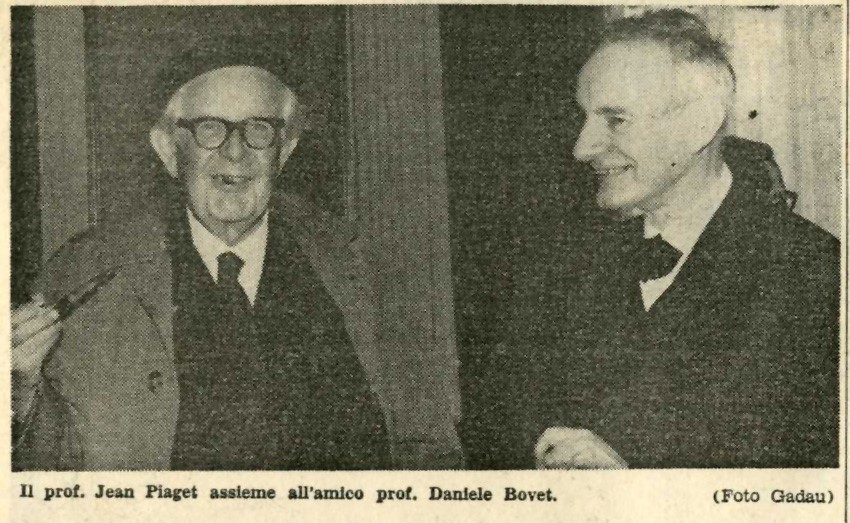 Invited by his friend Daniel Bovet, Nobel Prize winner in Physiology, Piaget spoke in the International Congress, that took place in May 1967, about the current trends in research on learning and memory. He presented the research carried out in Geneva, showing that the development of memory is linked to the development of intelligence, a study that was published the following year, in 1968.
Invited by his friend Daniel Bovet, Nobel Prize winner in Physiology, Piaget spoke in the International Congress, that took place in May 1967, about the current trends in research on learning and memory. He presented the research carried out in Geneva, showing that the development of memory is linked to the development of intelligence, a study that was published the following year, in 1968.
1968
Worcester (USA)
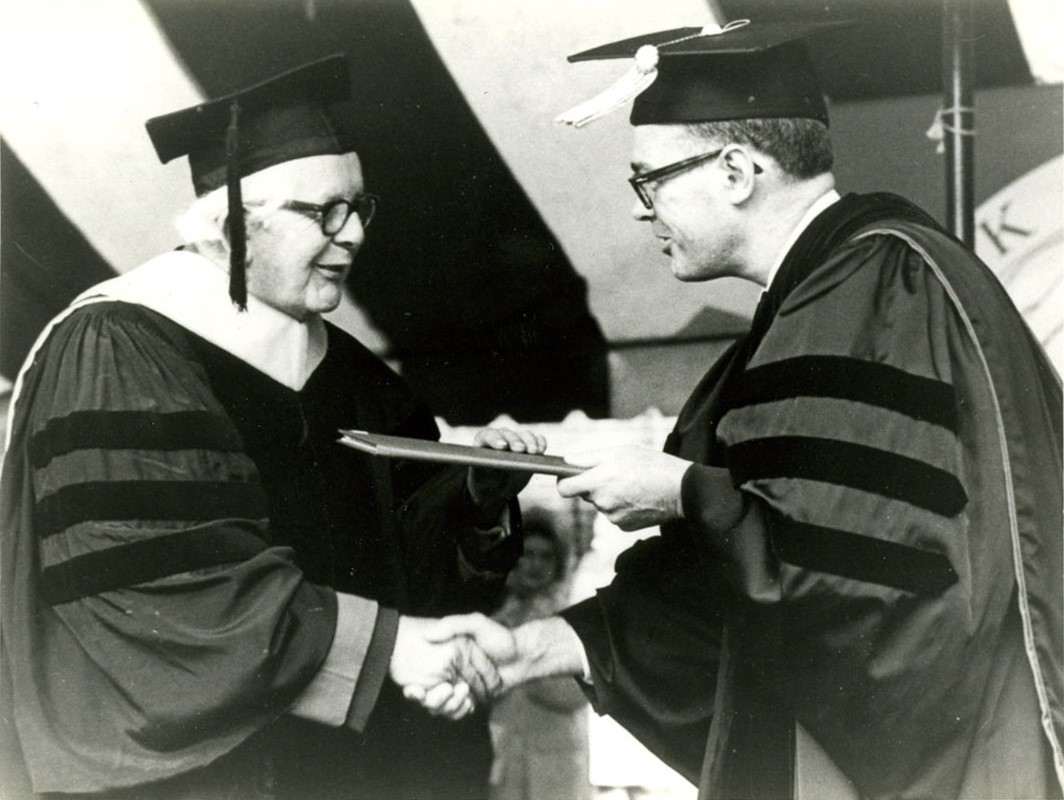 The collection of honorary doctorates – more than thirty – was usually combined with lectures on the current state of research at the Rousseau Institute. In this photo from 1968 Piaget was awarded with an honorary doctorate from Clark University.
The collection of honorary doctorates – more than thirty – was usually combined with lectures on the current state of research at the Rousseau Institute. In this photo from 1968 Piaget was awarded with an honorary doctorate from Clark University.




